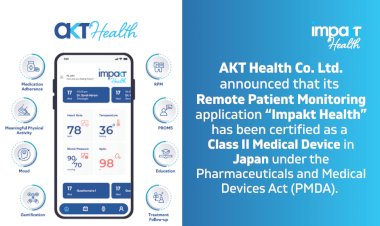Privacy of Healthcare with Blockchain and Big Data
The one signified approach is Blockchain, which together with Bitcoin, has much accumulate vehemence in the financial sector by accrediting trusted, scrutinized transactions using a decentralizing network of peers convoying by an open ledger.
As the volume of digital data burgeon in virtually every field, the prospective value from analysing it skyrockets — but so do affinity privacy risks.
Due to methods of protection getting old those either aren’t strong enough to scale or require a ignominy of the quality of the data itself, making it worthless hence methods for this protection developed a decades ago were now no longer translate well in the era of Big data.
One of the exceedingly considerable Privacy- flimsy data domains are Healthcare; it has an idiosyncratic set of supervisory essentials related to privacy protections predominately laid out in the U.S under the Health Insurance Portability and Accountability act of 1996.
Fortunately, new and flattering tools and methods of privacy protection make it possible to simultaneously protect data privacy and accuracy in order to leverage the value of big data in healthcare and comply with federal and international laws, including HIPAA.
Including HIPPA, federal and international laws comply with healthcare if this healthcare industry capable of having new and flattering tools and methods of privacy and protection which make it possible to simultaneously protect data privacy and accuracy in order to ascendancy the value of Big Data.
The one signified approach is Blockchain, which together with Bitcoin, has much accumulate vehemence in the financial sector by accrediting trusted, scrutinized transactions using a decentralizing network of peers convoying by an open ledger.
Yet transparent record of who has shared health data with whom, while blockchain could protects the details of data itself in healthcare. This kind is undoubtedly a dear piece of the privacy perplex, blockchain is premised on mathematically derived pseudonyms for distributed ledger verification and the HIPAA Privacy Rule prohibits use of mathematically derived pseudonyms because of potential re-identification of deidentified protected health information (PHI). Because of this limitation of mathematically derived pseudonyms as re-identification codes for de-identified information effectively makes blockchain non-HIPPA compliant.
Due to potential threat of anonymity and online privacy the issue regarding identification are raised for the use of blockchain and to support more accurate ratings for e-commerce and travel sites for individuals such as teachers, doctors, landlords, colleagues, and police officers. The potentially immutable nature of such distributed blockchain “trust” systems also raise concerns about perturbs about subverting an individual’s right to be forgotten.
The only challenge of blockchain in healthcare industry is (Non-compliance with HIPPA), is to fuse blockchain with Dynamic Data Obscurity to support non-mathematically derived dynamically anonymous identifiers to address HIPPA compliance issues, conquering the Mosaic Effect, and enable granular privacy controls.
The dynamic Data Obscurity can support proportional use of data in a manner that is responsive to the variety and complexity of the different, potential uses of data. Specifically, dynamic de-identification can divulge different levels and sort of information to the same and/or different parties at different times, for different purposes, at different places — with respect to each, only as necessary for each proposed use of data. By fusing blockchain and Dynamic Data Obscurity, it would be possible to support de-identification requirements under the HIPPA privacy rule.
Potential advantages from blockchain technology in healthcare, such as those set ahead below, depend on concern over, and supervisory necessities for, maintaining privacy and security of flimsy data first being resolved.
· By enabling common blockchain to the govt agencies, insurances companies, hospitals, clinics, and patients to use in heavily siloed healthcare industry by introduction an efficient and transparency framework.
· Blockchain network would allow health providers to share network without any privacy compromises, security or integrity.
· Blockchain to use managing the lifecycle of patient records and
· Streamlining the lifecycle of medical bills via blockchain.
The collaboration of blockchain and Dynamic Data Obscurity can conceivably serve as an example of technologists rising to the challenge laid down by former US FTC commissioner Julie Brill in her 2013 speech on the role, they can play in protecting privacy. She proclaimed, to help create technological solution to some of the most vexing privacy problems presented by Big Data.
How Dynamic Data de-identification is a Bridge to the Future
The issues like international data privacy and security issues have been raised occasionally but has not been taken serious and due to this the blockchain technology can help in this certain area to cover up the gap. Tensions in global data security requirements together with the importance of big data analytics and permitted use requires revisiting the capabilities of de-identification as a concrete means of reconciling conflicting interests.
Proposed Bitcoin Rules Could Make or Break User Privacy
Digital currencies are gaining the attention of regulatory bodies globally because they are arising in acceptance by retailers and consumers both. The domestic revenue service, which subjects to Digital currencies transactions to income tax liability for gains in value, just like assets, is one of those regulatory bodies. But it’s the situation, national and supra-national levels where authorities are starting to set out laws. One of those arising laws, and the responses it created by digital currencies companies and industry forums, will impact the privacy and data protection of Digital currency users.
Blockchain: The Next Big Thing in File Security?
The National Security Agency (NSA) antidote for a Snowdeneqsue sequel of revealed information could be Guard time’s Black Lantern, a program based on the technology behind Bitcoin, or “blockchain,” which prohibits users from tampering with files, Wired reports. “It keeps honest people honest,” said Guard time CTO Matt Johnson. “It makes it impossible for them to lie.”

 Meghana
Meghana 








































